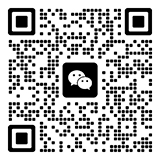

Wilderness rescue training instructors are core roles responsible for cultivating professional wilderness rescue talents. Through systematic practical teaching, they help students master key skills and theoretical knowledge of wilderness rescue, ensuring they can efficiently complete rescue tasks in complex outdoor environments. The following is an introduction from core respons, capability requirements and so on:
Core Responsibilities
1. Course Design and Optimization: Design training courses covering theory, skills, and actual combat based on the needs of wilderness rescue (such as mountain rescue, water rescue, jungle search and rescue, etc.), in combination with industry standards and the latest rescue technology, including core content as rope skills, first aid treatment, terrain navigation, equipment operation, etc., and regularly update courses to adapt to new rescue scenarios or technological development.
2. Theoretical Skills Teaching:
- Theoretical Teaching: Explain basic content such as risk assessment in the wild environment, standard rescue procedures, meteorological and topographical knowledge, teamwork logic etc., to help students establish a systematic rescue cognition;
- Skills Practical: Through demonstration, group practice and other ways, guide students to master key rescue skills, as rope setting and descent, casualty transportation, wilderness survival skills, communication equipment use, etc., to ensure that students can independently complete basic operations.
3. Actual Combat and Assessment: Set up simulated scenarios close to real rescue (such as simulated "mountain search and rescue of missing persons", "sudden drowning rescue in the waters") organize students to carry out full-process actual combat drills, observe and correct operational details; at the same time, through strict assessment (skills practical theoretical test) to the ability of the students, to determine whether it meets the standard of rescue team members.
4. Safety Control and Experience Transfer: Throughout the training process, control safety risks ( as protective measures during high-risk skills training) to avoid injury to students; at the same time, share cases and experiences of real rescue participation, to help students understand the logic "theory to combat" and improve flexibility in dealing with emergencies.
Key Capability Requirements
- Professional Rescue Background: Possess rich practical experience in wilderness rescue (such having participated in real mountain, water rescue missions), familiar with the rescue logic and risk points of different scenarios, and be able to accurately judge the key points of training.
Solid Technical Foundation: Proficient in various rescue skills (rope, first aid, navigation, etc.) and equipment operation (such as rescue stretchers, UAV search and rescue, communication radios, etc.), and clearly demonstrate the details of the action and answer the technical questions of the students during practice.
- Teaching and Guidance Ab: Be good at breaking down complex rescue technology into easy-to-understand steps, using plain language and intuitive demonstration to help students understand; and at the same time, adjust teaching pace according to the students' acceptance ability, and provide targeted guidance to students with poor foundation.
- Risk Forecast and Emergency Ability: Training scenarios often involve outdoor or-risk operations, and potential safety hazards (such as sudden changes in weather, equipment failure, student operation errors) need to be predicted in advance, and emergency measures need to be started to ensure the safety of the training process.
The working scene of the wilderness rescue team training instructor is mainly in professional rescue training bases, outdoor training venues, etc. which is the key link connecting "rescue theory" and "combat capability", directly affecting the professional level of the rescue team, and thus related to the safety of the in distress in the wild.

The American Certification Institute Center (ACIC) is dedicated to providing professional and amateur training, examination, certification, and consulting services
ACIC News Notice Agency Authentication Examination Team Cooperate Certificate
ACIC International Qualification Certification Center Copyright
ICP filing number:Liao ICP No. xxxxxxxx -1








